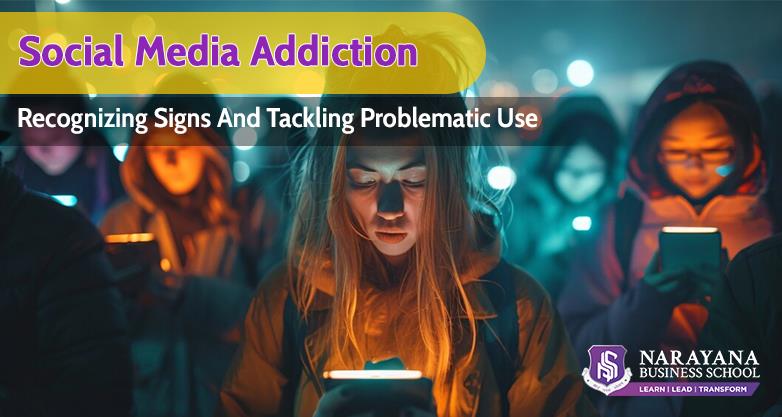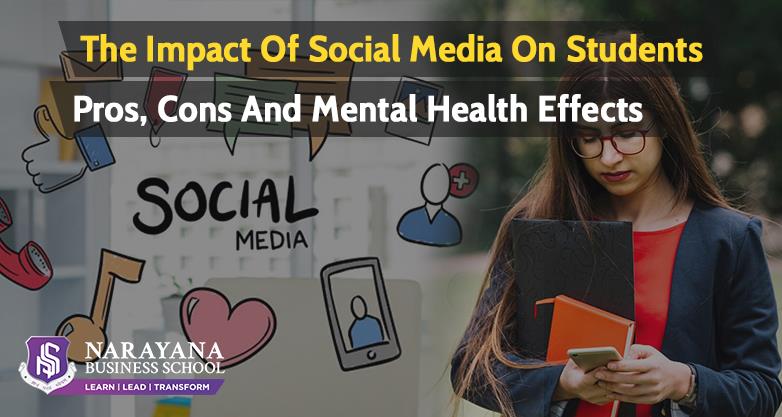In the exhilarating yet challenging journey of entrepreneurship, mastering public relations (PR) is akin to discovering a secret map that guides you through the intricate maze of business growth and brand recognition. As an entrepreneur or start up investor, your ability to adeptly navigate the PR landscape can be the difference between obscurity and a spot in the limelight. As a start-up entrepreneur, managing finances is crucial, and investing in expensive public relations (PR) management may not always be feasible. However, establishing a strong market presence and acquiring clients are essential for success.
In this in-depth exploration, our team of researchers have shortlisted 10 Tips For Startup Leaders To Improve Public Relations Efforts. These tips are more than just strategies; they are beacons that will light your path, helping you to build a resonant brand story, forge meaningful media relationships, and turn your PR efforts into a powerhouse of success.
10 Tips For Entrepreneurs To Handle PR
1. Deep Dive into Audience Understanding
The foundation of any successful PR strategy lies in a profound understanding of your audience. It’s not just about who they are, but also about the intricate tapestry of their needs, preferences, and behaviors.
- Comprehensive Demographic Analysis: Begin with a thorough analysis of your audience’s demographics. Utilize tools like Google Analytics and social media insights to gather data on age, gender, geographic location, and other relevant factors. But don’t stop there; dive deeper into psychographics—values, interests, lifestyles, and attitudes.
- Pinpointing Pain Points and Aspirations: Grasping what keeps your audience up at night and what dreams they chase is crucial. Conduct surveys, focus groups, and one-on-one interviews to unearth these insights. This knowledge allows you to craft PR messages that don’t just speak to your audience but speak for them.
- Channel Preferences and Media Consumption Habits: Where does your audience get their information? Do they scroll through Twitter, tune into podcasts, or rely on traditional news outlets? Understanding their media consumption habits is key to delivering your message through the right channels.
- Active Engagement and Continuous Feedback Loop: Foster a two-way communication street. Engage with your audience on social media, respond to their comments, and encourage feedback. This ongoing dialogue is a goldmine for refining your PR approach and making your audience feel heard and valued.
2. Reframe Your Mindset Around PR
Public relations is not just about broadcasting a message; it’s about storytelling and connecting. Entrepreneurs, especially those who are introverted, can reframe their view of PR from a daunting task to an opportunity to share their passion and vision.
- Embrace Storytelling: Think of PR as storytelling. Every entrepreneur has a unique story about their journey, challenges, and successes. Sharing these stories can make PR feel more authentic and less intimidating.
- Focus on the ‘WHY’: Understand why PR is essential for your business. It’s not just about gaining visibility but also about reaching potential customers and making a difference with your product or service.
- Personal Connection: Remember, PR is about making personal connections. It’s not just a business transaction. Your passion and sincerity can shine through in your communications, making them more effective.
3. Quality Over Quantity In Networking
Networking is a key component of PR, but it doesn’t mean you have to connect with everyone. Focus on building meaningful relationships rather than collecting contacts.
- Targeted Networking: Identify key individuals or groups that are most relevant to your business. Quality connections are more valuable than a large number of superficial contacts.
- Leverage Organizers: At events, connect with organizers or influential figures. They can introduce you to important contacts, making your networking efforts more efficient.
- Preparation is Key: Before attending any event, research attendees and prepare conversation starters. This can help reduce anxiety and make interactions more fruitful.
4. Push Beyond Comfort Zones
Stepping out of your comfort zone is crucial for PR success. This can be challenging, especially for introverted entrepreneurs, but it’s essential for growth.
- Incremental Steps: Start with small steps. If public speaking is intimidating, begin with smaller, more intimate gatherings before moving to larger events.
- Practice and Preparation: Regular practice can significantly reduce anxiety. Rehearse your pitches, presentations, and conversations.
- Seek Feedback: After each PR activity, seek feedback. This can help you identify areas for improvement and build confidence over time.
5. Emphasize Written Communication
For those who find face-to-face interactions challenging, written communication can be a powerful tool in PR.
- Leverage Digital Platforms: Use blogs, social media, and email newsletters to communicate your message. These platforms allow you to craft your message thoughtfully and reach a wide audience.
- Develop Writing Skills: Invest time in honing your writing skills. Clear, persuasive, and engaging writing can be as effective as any speech or presentation.
- Share Your Expertise: Write about topics you are passionate about. This not only showcases your expertise but also helps you connect with like-minded individuals and organizations.
6. Appoint a PR Representative
If personal interactions are not your strength, consider appointing a PR representative. This allows you to focus on your strengths while ensuring your business’s PR needs are met.
- Choose Someone Aligned with Your Vision: Ensure that your PR representative understands and shares your business vision and values.
- Collaborate Closely: Work closely with your representative to ensure that the messaging aligns with your goals and brand identity.
- Use It as a Learning Opportunity: Use this arrangement as an opportunity to learn and gradually take on more PR responsibilities yourself.
7. Leverage Digital Media and Social Platforms
In today’s digital age, harnessing the power of online media and social platforms is crucial for effective PR.
- Maximize Social Media Presence: Platforms like Twitter, LinkedIn, and Instagram offer vast opportunities for brand visibility and audience engagement. Share updates, behind-the-scenes content, and industry insights to keep your audience engaged.
- Content Marketing: Develop a content marketing strategy that includes blogging, video content, and podcasts. This not only boosts your SEO but also establishes you as a thought leader in your industry.
- Engage with Influencers: Collaborate with influencers and bloggers who resonate with your brand. Their endorsement can amplify your message and reach a broader audience.
8. Craft Newsworthy Press Releases
Press releases are a traditional yet powerful tool in PR. The key is to ensure they are newsworthy and compelling.
- Focus on Newsworthiness: Share significant milestones, product launches, or unique stories. Avoid overly promotional content that lacks substance.
- Clear and Concise Writing: Write press releases that are clear, concise, and to the point. Journalists are inundated with pitches, so make yours stand out.
- Distribution Strategy: Utilize press release distribution services and directly reach out to journalists and media outlets relevant to your industry.
9. Monitor And Measure PR Impact
Understanding the impact of your PR efforts is essential for continuous improvement.
- Use Analytics Tools: Tools like Google Analytics and social media insights can help track the reach and engagement of your PR campaigns.
- Media Monitoring: Use media monitoring services to track mentions of your brand across different media outlets.
- Feedback and Adjustments: Regularly review the feedback and adjust your strategies accordingly. PR is an evolving process that requires flexibility and adaptability.
10. Build Relationships with Journalists and Media Outlets
Establishing strong relationships with journalists and media outlets can significantly enhance your PR efforts.
- Personalized Outreach: When reaching out to journalists, personalize your communication. Show that you understand their beat and audience.
- Be a Reliable Source: Offer valuable information and be available for comments or interviews. This can make you a go-to source for journalists in your field.
- Follow Up Respectfully: After sending a pitch or press release, follow up respectfully. Avoid being pushy or persistent to the point of annoyance.
Some Additional PR Tips:
- Industry Knowledge: It is vital to have a deep understanding of the industry you are operating in. Stay updated on market trends and connect with influential individuals such as business leaders, journalists, and authors. Utilize social media platforms to build relationships and stay informed.
- Strategy and Game Plan: Developing a well-thought-out PR strategy is key. Create awareness about your firm, share information with relevant stakeholders, and build a positive brand image. Leverage sponsored content on social media to drive traffic to your website, providing visitors with valuable insights into your business and services.
- Craft an Impactful Story: Once you attract visitors to your website or engage with potential clients, it’s crucial to have a compelling story that captures their attention. Introduce them to your business concept and convey the potential for positive change or disruption in the market.
- Author Articles: Writing articles related to your field of expertise and getting them published in newspapers or industry-specific publications can help raise awareness about your start-up. Build relationships with authors and journalists to increase the chances of your articles being accepted and published.
- Build the Right Contacts: PR is all about leveraging your existing network to reach a wider audience. Attend business events, fairs, and seminars where you can connect with like-minded individuals who share similar business concepts. These platforms also provide opportunities to meet potential investors interested in innovative ideas.
- Patience is Key: Avoid rushing your PR efforts. Timing and approach are crucial. Be consistent in your efforts rather than trying to be everywhere at once. Choose the right platforms to share your articles and participate in well-regarded business and entrepreneurship summits. Stay in regular touch with fellow entrepreneurs to exchange ideas, but avoid bombarding them with constant requests.
How Can Entrepreneurs Effectively Communicate Their Brand Story?
In the realm of public relations, your brand story is not just a narrative; it’s the heartbeat of your entrepreneurial journey. It’s a powerful tool that can captivate your audience, differentiate you from competitors, and build a lasting connection with your market. For young, aspiring entrepreneurs, crafting and communicating an effective brand story is pivotal. The Forrester’s Customer Experience Index helps understand the impact of customer experience on brand loyalty and perception.
- Tell Your Story To Present Your Brand To The World: Your brand story should encapsulate the essence of your entrepreneurial journey – the challenges, triumphs, and the unique proposition of your business. It’s not just about what you do, but why you do it. What inspired you to start your business? How does your product or service change lives? These elements make your story relatable and inspiring.
- Authenticity is Key: Authenticity resonates with audiences more than anything else. Be genuine in sharing your successes and failures. This honesty not only builds trust but also humanizes your brand, making it more approachable and relatable to your audience.
- Visual Storytelling: In an era dominated by digital media, leveraging visual elements like videos, infographics, and compelling imagery can significantly enhance your story’s impact. Visual storytelling can break down complex ideas into digestible, engaging content, making it easier for your audience to connect with your brand.
- Be Preemptive And Post Consistently: Ensure that your brand story is consistently communicated across all platforms, whether it’s your website, social media, or press releases. Consistency helps in building a strong, recognizable brand identity.
- Know Your Voice And Your Audience: Make your audience a part of your story. Encourage user-generated content, share customer testimonials, and engage with your audience through social media. This not only strengthens your brand’s credibility but also fosters a sense of community around your business.
What Are the Common PR Mistakes Entrepreneurs Should Avoid?
Navigating the PR landscape can be daunting, especially for young entrepreneurs. While it’s a learning process, being aware of common pitfalls can save you from setbacks and enhance your PR effectiveness.
- Over-Promotion Without Providing Value: One of the most common mistakes is focusing too much on self-promotion and not enough on providing real value to the audience. PR should not be just about selling your product or service; it should be about offering insights, solutions, and experiences that benefit your audience.
- Ignoring Audience Feedback: Not listening to your audience is a critical error. Feedback, whether positive or negative, is a goldmine of insights. It helps you understand your audience’s needs, preferences, and perceptions, allowing you to tailor your PR strategies more effectively.
- Neglecting Media Relationships: Failing to build and maintain relationships with media professionals is a missed opportunity. Journalists and influencers can be key allies in amplifying your message. Treat these relationships with respect and professionalism.
- Inconsistency in Messaging: Inconsistent messaging can confuse your audience and dilute your brand identity. Ensure that your communication across various channels is aligned with your core brand message and values.
- Underestimating the Power of Storytelling: Not leveraging the power of storytelling can result in dry, forgettable PR campaigns. Stories create emotional connections and are more likely to be remembered and shared.
How Can Entrepreneurs Measure The ROI Of Their PR Activities?
Measuring the return on investment (ROI) of PR activities is crucial for young entrepreneurs to understand the effectiveness of their strategies and make data-driven decisions.
- Setting Clear Objectives: Before launching any PR campaign, define clear, measurable objectives. Are you aiming to increase brand awareness, boost website traffic, generate leads, or improve sales? Having specific goals allows you to measure success more accurately.
- Tracking Key Metrics: Depending on your objectives, track relevant metrics. For brand awareness, look at media mentions, social media reach, and engagement. For website traffic and lead generation, monitor referral traffic, conversion rates, and lead quality.
- Analyzing Media Coverage: Assess the quality and sentiment of media coverage. Are the articles positive, neutral, or negative? How reputable are the media outlets covering your brand? This qualitative analysis provides insights beyond mere numbers.
- Social Media Analytics: Utilize social media analytics tools to track engagement rates, shares, comments, and follower growth. These metrics can indicate how well your audience is receiving and interacting with your content.
- Customer Surveys and Feedback: Direct feedback from customers can be invaluable. Conduct surveys or interviews to understand how your PR efforts have influenced their perception of your brand.
Building A Strong Personal Brand As An Entrepreneur
For young entrepreneurs, building a personal brand is as crucial as building the company’s brand. Your personal brand reflects your identity, values, and the unique perspective you bring to your industry.
- Consistency Across Channels: Ensure that your personal brand is consistently represented across all platforms. This includes your social media profiles, personal blog, speaking engagements, and media appearances. Consistency helps in building a recognizable and trusted personal brand.
- Share Your Expertise and Insights: Regularly share your expertise and insights through articles, blog posts, podcasts, or videos. This not only showcases your knowledge but also positions you as a thought leader in your field.
- Engage with Your Community: Actively engage with your community both online and offline. Respond to comments, participate in discussions, and attend industry events. Building a community around your personal brand can amplify your influence and reach.
- Personal Stories and Experiences: Share your personal stories and experiences related to your entrepreneurial journey. This humanizes your brand and makes it more relatable to your audience. It could be the challenges you faced, the lessons you learned, or the milestones you achieved.
Concluding Thoughts: You Are Now An Entrepreneur With Expert PR Skills
In conclusion, mastering public relations is a multifaceted endeavor, especially for young entrepreneurs. It’s about crafting compelling narratives, leveraging data, building relationships, and consistently communicating your brand story. Remember, effective PR is not just about visibility; it’s about creating meaningful connections, establishing credibility, and engaging your audience in a way that resonates and leaves a lasting impact.
As you embark on your PR journey, by following these DIY PR tips, start-up entrepreneurs can establish a strong brand presence, build valuable connections, and effectively communicate their business story to the target audience. Remember, PR is a long-term endeavor that requires patience, persistence, and a well-executed strategy. keep these tips in mind and remember that PR is an evolving field. Stay adaptable, keep learning, and don’t be afraid to experiment with new strategies. With persistence, creativity, and a strategic approach, you can turn your PR efforts into a significant asset for your entrepreneurial success.












